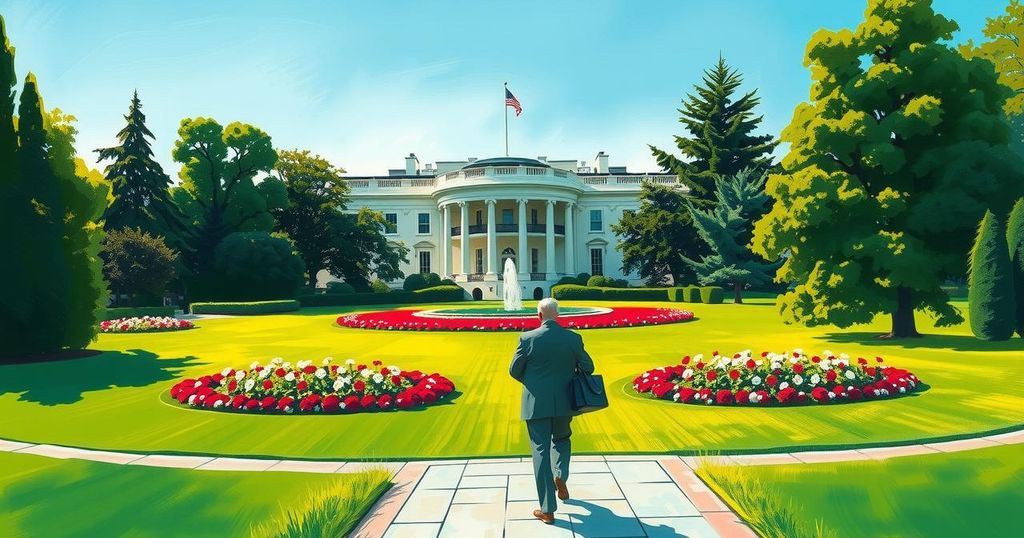Donald Trump to Announce Reciprocal Tariffs on Liberation Day

US President Donald Trump is expected to announce reciprocal tariffs today, criticized India for high tariffs on American goods, and hinted at a 20% tax on imports. The tariffs will be unveiled in the Rose Garden at 4 PM Washington time, with far-reaching economic implications. Countries like India and Canada are likely to be affected, while Australia and Israel react to the impending changes.
On April 2, US President Donald Trump is set to announce reciprocal tariffs, a move anticipated by many as “Liberation Day.” Prior to the announcement, the White House criticized India for its high tariffs on American agricultural goods, noting similar trade barriers in the EU, Japan, and Canada. This situation has heightened expectations regarding the upcoming announcement targeted at these nations.
According to a report from the Washington Post, Trump’s team has devised a plan to implement a 20% tax on a variety of imported goods. The report further suggests that the administration may utilize the revenue from these tariffs to provide taxpayer refunds or dividends, thus contributing to the broader economic landscape.
The tariffs will be announced in the Rose Garden at the White House, with US Treasury Secretary Scott Bessent indicating a release time of 4 PM Washington time, or 1:30 AM IST. This introductory moment is critical as it signals an immediate imposition of tariffs, which will significantly affect importing US companies, as indicated by spokesperson Karoline Leavitt’s comments.
Higher tariffs on imports may compel companies to seek cost-saving measures, including switching suppliers or increasing prices for consumers. Such adjustments carry risks; excessive price hikes could lead to decreased consumer demand and potentially trigger a recession across the US and other global economies.
Reciprocal tariffs refer to the surcharges imposed by the US government that are designed to match tariffs levied by other countries on American goods. These tariffs are dynamic and can fluctuate based on the reactions from other nations.
In addition to previously imposed tariffs on steel, aluminum, and other imports, new tariffs on automobiles are expected to take effect shortly after the announcements. On the other hand, in a contrasting move, Israeli Prime Minister Benjamin Netanyahu has eliminated all custom duties on US goods, following the approval from the Knesset Finance Committee.
In Australia, both Prime Minister Anthony Albanese and his opposition leader Peter Dutton have reaffirmed their commitments to safeguard national interests in light of the forthcoming tariffs, emphasizing the significance of their free trade agreement with the US.
The specifics of which countries will be affected by these tariffs remain somewhat ambiguous. President Trump suggested during a recent statement that all countries could potentially face tariffs. Although reports indicate that the US Trade Representative’s office has expressed particular interest in countries like India, Canada, China, and several others, the eventual list remains under deliberation.
In summary, President Trump’s impending announcement regarding reciprocal tariffs embodies significant economic implications both domestically and internationally. With the potential for widespread tariff impositions affecting multiple countries, businesses may need to adapt quickly to new economic conditions. This situation further raises concerns about consumer costs and the possibility of a recession. Overall, the developments surrounding this “Liberation Day” will be closely monitored as they unfold.
Original Source: www.financialexpress.com






